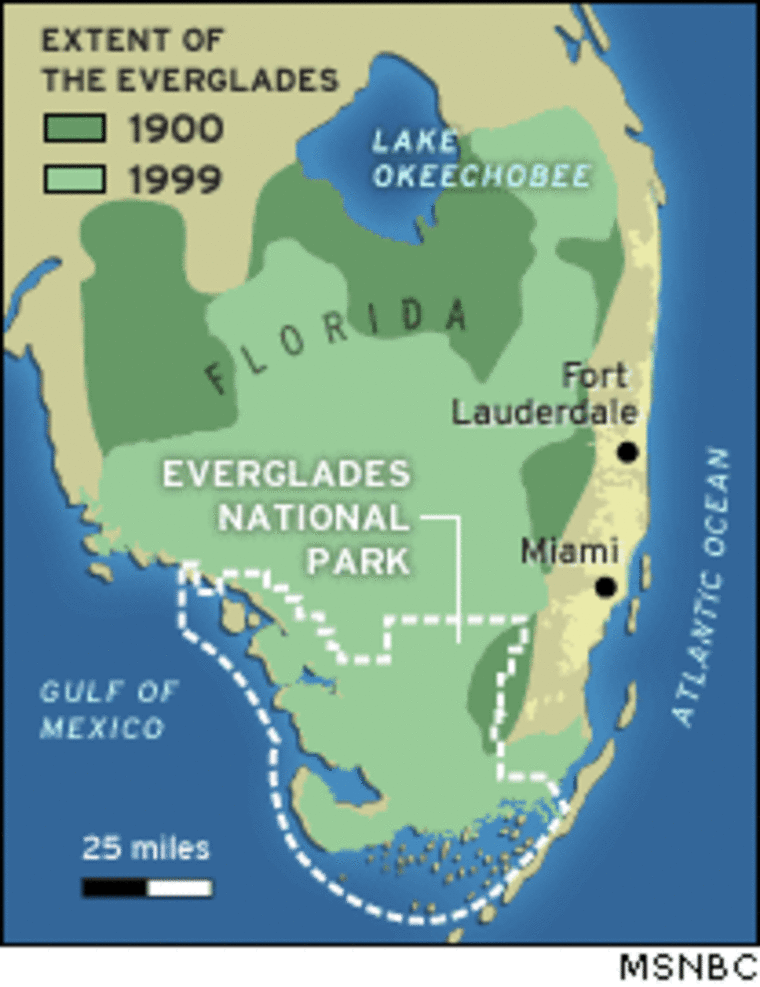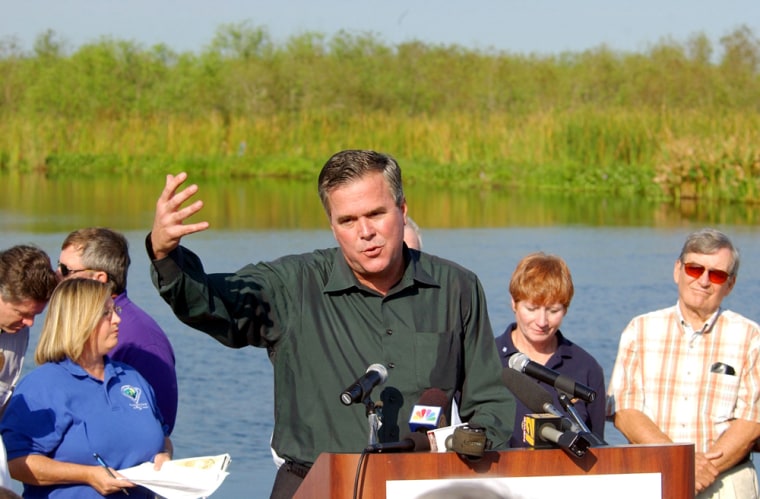The state plans to start eight projects related to Everglades restoration, including building reservoirs that could ease suburban flooding and environmental damage from hurricanes, officials said Thursday.
The plans would be part of a 30-year, $8.4 billion federal-state program to restore some of the natural water flow through the Everglades.
“Florida is strengthening its commitment to the Everglades by further accelerating the largest environmental restoration effort in this nation’s history,” Gov. Jeb Bush said. “Completing critical restoration projects more than 10 years ahead of schedule will save money and provide immediate environmental, social and economic benefits.”
Congress has yet to fund the full restoration, in part because of federal concerns and criticism of Florida’s overhaul of water pollution laws last year.

Bush revealed more about the state’s plan at a wildlife refuge Thursday. The eight projects include ones to improve freshwater flow into Biscayne and Florida bays and to reduce dirty water flow from Lake Okeechobee.
Environmental groups said Everglades restoration was something they wanted, but they and the Miccosukee Tribe worried about the lack of public input and the potential for the state to cut regulatory corners.
Don Jodrey, an attorney for the U.S. Interior Department, said federal agencies recognized that the state can move more quickly — particularly with approving money.
The South Florida Water Management District would largely manage the eight projects and would pay the estimated $1.5 billion bill through special bonds, with reimbursement coming later from the U.S. Army Corps of Engineers.
